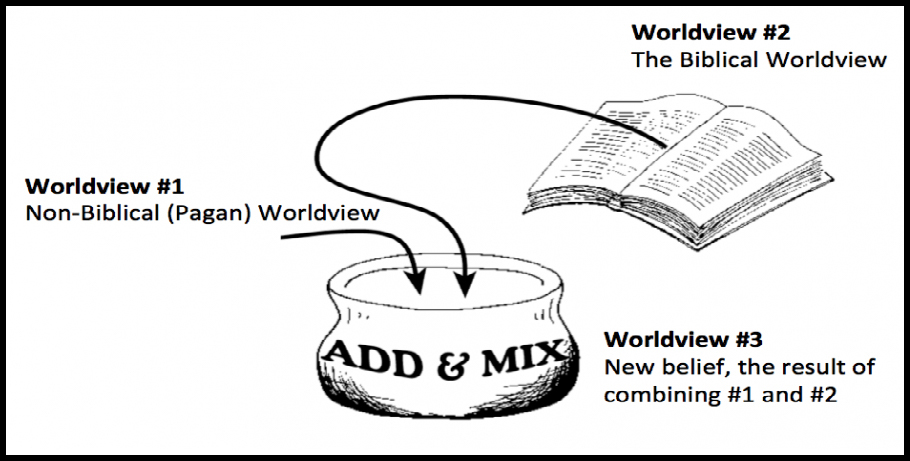Kerby Anderson
In his latest American Worldview Inventory, George Barna concludes that only six percent of American adults have a biblical worldview. This leads to the obvious question: What do the rest of American adults believe? Most of them (88%) hold to a worldview that could best be described as syncretism.
Syncretism is a cut-and-paste approach to life. It is not an internally consistent and philosophically coherent perspective. Americans apparently are picking and choosing what they believe based upon their exposure to various views and their emotional comfort with those views.
We might be tempted to think that anyone who does not have a biblical view must have a secular or postmodern view of the world. Those represent only a very small percentage of the views embraced by American adults.
George Barna observes that a worldview in America develops by default. Most Americans don’t even know what a worldview is and apparently haven’t spent too much time analyzing what they believe and why they believe it. “Our studies show that Americans are neither deep nor sophisticated thinkers.”
He argues that “worldview is caught more than it is taught in the US.” That should not be too surprising. Paul’s warning to believers in Romans 12:2 was “Do not be conformed to this world but be transformed by the renewal of your mind.” In Colossians 2:8 he said, “See to it that no one takes you captive by philosophy and empty deceit, according to human tradition, according to the elemental spirits of the world, and not according to Christ.”
This latest survey illustrates why we need to teach good theology in the church and in our homes. Most Americans have a mixed-up theology. We should make sure our view of the world doesn’t come from the world.
 Listen Online
Listen Online Watch Online
Watch Online Find a Station in Your Area
Find a Station in Your Area









 Listen Now
Listen Now Watch Online
Watch Online
